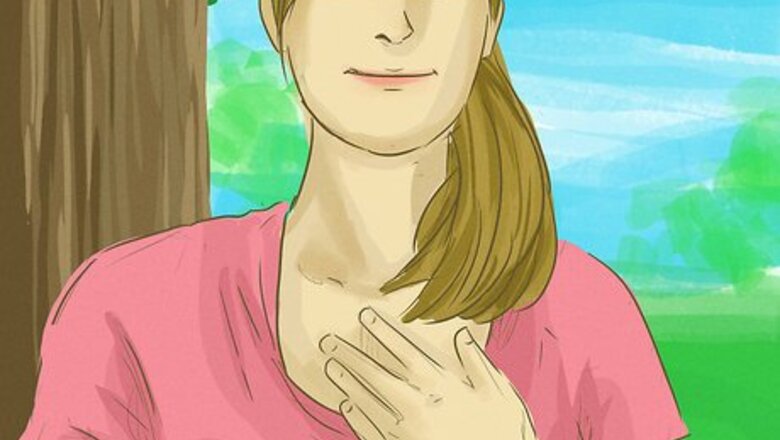
views
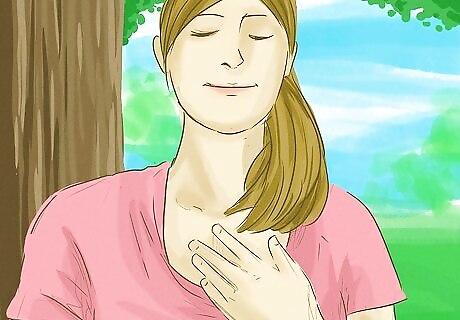
Practice mindfulness of self. The part of the mind we call "ego" that mediates between the conscious and the unconscious is responsible for a sense of personal identity. The unconscious mind is a reservoir of feelings, thoughts, urges, and memories that are outside of our conscious awareness. A healthy brain has some 200 billion neurons. Conscious mind controls our brain only 5% of the day, whereas the subconscious mind has control of our thoughts 95% of the time. A human brain has 70,000 thoughts per day. The brain requires up to 20% of the body's energy despite being only 2% of the human body by weight. Begin by paying attention to yourself and increasing your self awareness. A new study has found the average person has more than 6,000 thoughts every day. In a stressful day we speak of 7,500 thoughts! Perform this in a sitting meditation if it is applicable. Become aware of your breathing, your thoughts, your body and the sounds around you. De-touch from your body, experiencing one's thoughts, this vast ocean of unconsciousness that is related to all of us (the age group, the pear group, relationship status, career group, etc.) is the first step of self-awareness.
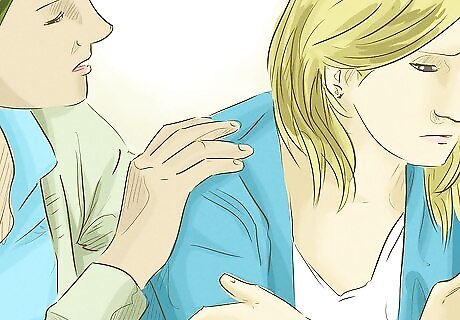
Practice mindfulness of others. Core beliefs are basic beliefs about ourselves, other people, and the world we live in. Essentially, core beliefs determine how you perceive and interpret the world. They sit in the basement of your mind. We have similar fears, desires, problems and loves. Break your routine, change your setting, go to a different part of the town, go to a different country, or learn a skill that is totally alien to you like pottery or philosophy or gardening, explore different behaviors patterns, you will learn that we are all one, as the humanity, sharing the same patterns. Get involved with an NGO, feed the poor or help holding the orphan babies, spend some time volunteering in Africa, through recognizing another’s struggles, suffering and so on within yourself you begin to arise compassion and empathy.

Practice mindfulness of action. Mindfulness of action is recorded within our books as early as 385 BC when the Ancient Greek Socrates with his student Plato were the founders of the world's first Academy, claimed that wrongdoing results from ignorance, and that those who did wrong knew no better. He says that all virtue - is knowledge; and that Virtue is sufficient for happiness. So the best way for people to live is to focus on the pursuit of virtue. Concentrate more on friendships and a sense of true community. While developing own-skills and ability, stay in pursuit of virtues. That is mindful action.
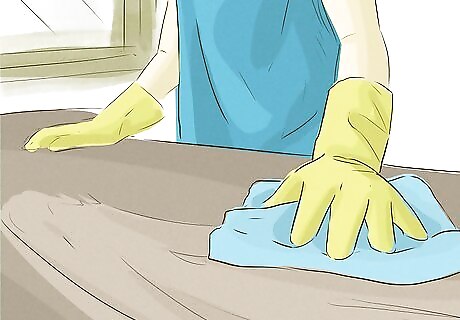
Practice mindfulness at house and home. A neat, tidy house feels inviting, both for the people who live there as well as guests. A cluttered home may feel the opposite. Shutting people out so they do not whiteness the mess, can take a toll on relationships making you feel lonely. A house disorder tends to overlap with depression and anxiety disorders. Depressed people often feel too fatigued or hopeless to keep up with the routine of household tasks. Home is a means of therapeutic respite. An untidy house promotes things like lethargy whereas a tidy house will promote productivity and calmness.

Practice mindfulness at work. Personal growth involves the growth and enhancement of all aspects of the person, the feelings you have about yourself, and your effectiveness in living. This is another way to practice mindfulness, work provides a great source for focus, attention, quality check. Enjoying whilst perfecting is an art-form. Discovering better ways in which to perform the tasks required of you takes carriage and involves freedom of creative thinking. As a result you can thrive developing yourself, helping your colleagues, working in a team, or working as a leader. If you work with customers, they too appreciate your mindfulness practice because they realise that you are truly there.

Practise mindfulness of relationships. The top skills for a mindful relationship are: Truthfulness and honesty in action, speech, intention. Empathy and compassion expands our willingness to listen to what the other is saying, feeling, experiencing. Communication in kind, constant, and consistent way is also expressed as the willingness to work through difficulties and disagreements. A sense of humor, whilst sharing life lessons can be the best way to approach a criticism. Emotional support, validation, and compliments. Love, intimacy, and romance. Commitment to growing together. When you practice mindfulness of relationships you begin to see just how people affect one another.













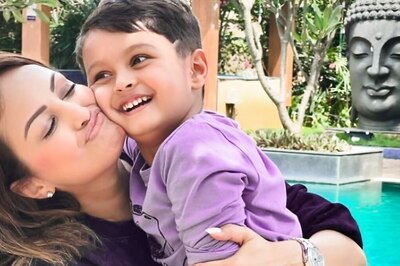





Comments
0 comment